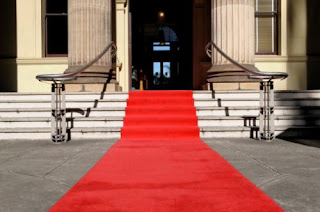SMEs are often privately owned business that are managed by their owner / entrepreneur. In larger organization, the "power base" tends to be more evenly distributed amongst the managers of various departments, whereas in SMEs the owner generally controls all strategic decisions.
The background, character, values, beliefs, and education of an SME's owner will thus have a significant impact on the strategic direction of the firm.
Another point for SMEs that makes them different from larger companies is their organizational structure. In SMEs, job description are often not well defined. There can be a significant overlap in responsibilities, with staff members taking on a number of different roles. The accountability of individuals is therefore often less clearly set out than in larger firms, and initiatives sometimes tend to "fizzle out".
SMEs often have less structured procedures in place for strategic development. In addition, their communication and information flows are usually less formalized. This mean that staff members sometimes fail to follow up on details regarding strategic initiatives (collecting clients data, controlling expenses, communicate with their peers, vow out their feeling).
Day to day orientation
An important characteristics of SMEs is their general focus on day-to-day activities. Because their financial and staff resources tend to be restricted, SMEs often concentrate on short term problem solving and "making ends meet" as opposed to taking a long term strategic approach.
Day to day Internal Operation
A valuable characteristic is that SMEs owner have a clear idea on what products and services they would like to cater to their clients. They challenge innovation on daily basis.
This vision is often not align with the outcomes since they have difficulty explaining their employees what level of customer service and business excellence they are expecting. Absence of operating guidelines are often strong reasons of customer satisfaction results since every employee tends to be corrected by the owner on spot.
The majority of SMEs do not attach importance to trainings and skills development. Training opportunities are not equally distributed amongst staff, being mainly offered to high medium skilled employees.
Most of the time, SMEs owners think that investment in training equals a waste of money but at the same time they never consider the cost of continuing to employ staff without proper skills. There is a fear that trained personnel would leave the company when their skill levels increase.
Lack of access to financing is consistently cited by SMEs as one of the main barrier to growth. Often consider by commercial banks and financial institutions as risky and costly to serve, SMEs are largely underserved when it comes to basic financial services. With such a limited access to financing, owners need to have a fundamental understanding on their financing and not only their cash collection at the end of the day. Because the key to successful finance, is planning.
Internal controls need to happen to streamline your finance and operational structure. It is your responsibility to reduce frauds and operational risks, reduce leakage of revenue and standardized systems and processes.
Day to day External Operation
Clients could come to SME to expect friendlier service at small establishments, but this does not guarantee qualified service. Small to medium size firms tend to have a smaller percentage of managers and more executive staffs.
To make matter, those establishments depend on informal, on job trainings of staff rather than formal training. This training approach implies that the Operation staffs may not have adequate training to deal with customer inquiries or complaints although there focus on clients satisfaction is a priority.
In summary, SME are a primary driver for job creation and GDP growth. They greatly contribute to economic diversification and social stability and they play an important role in private sector development. SME development also represents a major and difficult challenge.
Patronizing SMEs exposes the consumer to many challenges and potential market failures in such areas as choices, complaints and handle, information. More specifically, consumers can expect to confront the:
1) Inability to be a repeat customer at, or complaint to an establishment that disappear within 18 months,
2) Potential for dealing with insufficient and under train staff
3) Probability that SME staff will not have knowledge of consumer demand, needs and expectations.
RSVP Hospitality Team - We never stop thinking
The background, character, values, beliefs, and education of an SME's owner will thus have a significant impact on the strategic direction of the firm.
Another point for SMEs that makes them different from larger companies is their organizational structure. In SMEs, job description are often not well defined. There can be a significant overlap in responsibilities, with staff members taking on a number of different roles. The accountability of individuals is therefore often less clearly set out than in larger firms, and initiatives sometimes tend to "fizzle out".
SMEs often have less structured procedures in place for strategic development. In addition, their communication and information flows are usually less formalized. This mean that staff members sometimes fail to follow up on details regarding strategic initiatives (collecting clients data, controlling expenses, communicate with their peers, vow out their feeling).
Day to day orientation
An important characteristics of SMEs is their general focus on day-to-day activities. Because their financial and staff resources tend to be restricted, SMEs often concentrate on short term problem solving and "making ends meet" as opposed to taking a long term strategic approach.
Day to day Internal Operation
A valuable characteristic is that SMEs owner have a clear idea on what products and services they would like to cater to their clients. They challenge innovation on daily basis.
This vision is often not align with the outcomes since they have difficulty explaining their employees what level of customer service and business excellence they are expecting. Absence of operating guidelines are often strong reasons of customer satisfaction results since every employee tends to be corrected by the owner on spot.
The majority of SMEs do not attach importance to trainings and skills development. Training opportunities are not equally distributed amongst staff, being mainly offered to high medium skilled employees.
Most of the time, SMEs owners think that investment in training equals a waste of money but at the same time they never consider the cost of continuing to employ staff without proper skills. There is a fear that trained personnel would leave the company when their skill levels increase.
Lack of access to financing is consistently cited by SMEs as one of the main barrier to growth. Often consider by commercial banks and financial institutions as risky and costly to serve, SMEs are largely underserved when it comes to basic financial services. With such a limited access to financing, owners need to have a fundamental understanding on their financing and not only their cash collection at the end of the day. Because the key to successful finance, is planning.
Internal controls need to happen to streamline your finance and operational structure. It is your responsibility to reduce frauds and operational risks, reduce leakage of revenue and standardized systems and processes.
Day to day External Operation
Clients could come to SME to expect friendlier service at small establishments, but this does not guarantee qualified service. Small to medium size firms tend to have a smaller percentage of managers and more executive staffs.
To make matter, those establishments depend on informal, on job trainings of staff rather than formal training. This training approach implies that the Operation staffs may not have adequate training to deal with customer inquiries or complaints although there focus on clients satisfaction is a priority.
In summary, SME are a primary driver for job creation and GDP growth. They greatly contribute to economic diversification and social stability and they play an important role in private sector development. SME development also represents a major and difficult challenge.
Patronizing SMEs exposes the consumer to many challenges and potential market failures in such areas as choices, complaints and handle, information. More specifically, consumers can expect to confront the:
1) Inability to be a repeat customer at, or complaint to an establishment that disappear within 18 months,
2) Potential for dealing with insufficient and under train staff
3) Probability that SME staff will not have knowledge of consumer demand, needs and expectations.
RSVP Hospitality Team - We never stop thinking


































